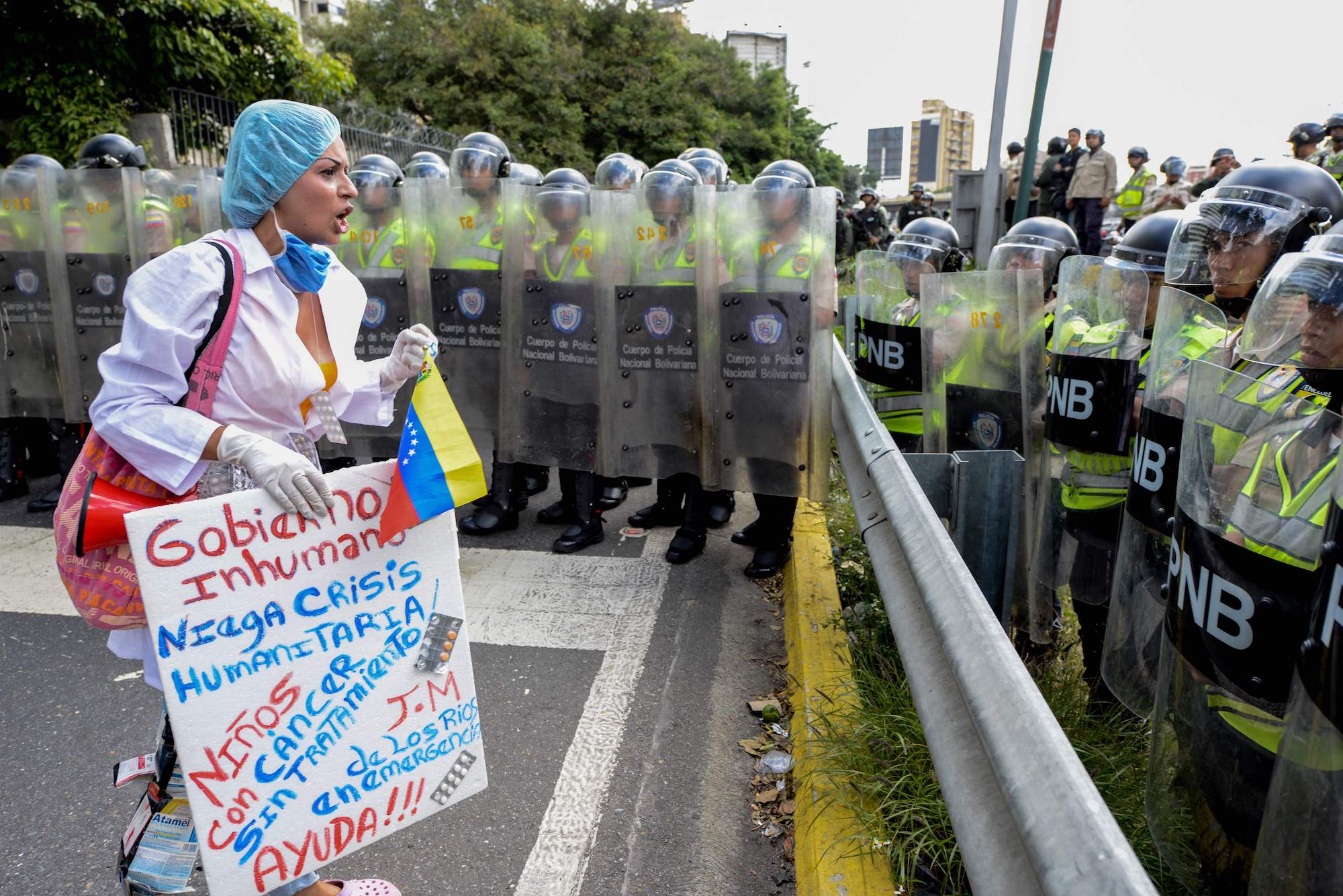Meeting Basic Health Needs in a Venezuela in Crisis: What Roles Can the United States and International Community Play?
Katherine Bliss. "Meeting Basic Health Needs in a Venezuela in Crisis: What Roles Can the United States and International Community Play?." CSIS Commission on Strengthening America's Health Security, Center for Strategic and International Studies, April 17, 2017. Accessed December 21, 2023. https://healthsecurity.csis.org/articles/meeting-basic-health-needs-in-a-venezuela-in-crisis-what-roles-can-the-united-states-and-international-community-play/

This commentary, by CSIS Global Health Policy Center Senior Associate Katherine Bliss, examines the relationships between disorder and health security through the case of Venezuela. Venezuela continues to experience an unprecedented humanitarian crisis, with a refugee exodus of approximately 1.8 million Venezuelans as of August 2018. Communicable diseases such as diphtheria and malaria continue to resurge within Venezuela and among the migrant and refugee populations fleeing to border countries and beyond. The implosion of the Venezuelan health sector, the mass exodus into the surrounding region, and the resurgence of disease illustrate the effects of disorder in geopolitical crises on health security.
Since 2014, the Bolivarian Republic of Venezuela, which at one time enjoyed international recognition for its malaria elimination program, achievements in life expectancy, and progress addressing infectious diseases, has shown increasingly negative health indicators. While in many countries these trends might prompt intersectoral collaboration and broad public discussion regarding how to address health challenges, in Venezuela, the administration of President Nicolás Maduro has been unwilling to acknowledge the deteriorating health situation. Given Venezuela’s grim economic outlook and reluctance of the Maduro administration to recognize ongoing challenges or seek external assistance for health, many experts anticipate the health situation in Venezuela will remain difficult for the foreseeable future.
In responding to the health crisis in Venezuela, the United States and the international community can consider several options: they can encourage the Venezuelan government to fulfill commitments to protect the population’s health and access to essential medicines; and they can support civil society organizations and professional groups providing analysis about the health sector. Strengthening the potential of public health professionals within Venezuela, as well as in the diaspora, to develop plans for reforming the health system and addressing current public health challenges should there be a political opening for them to do so will be important, as well.